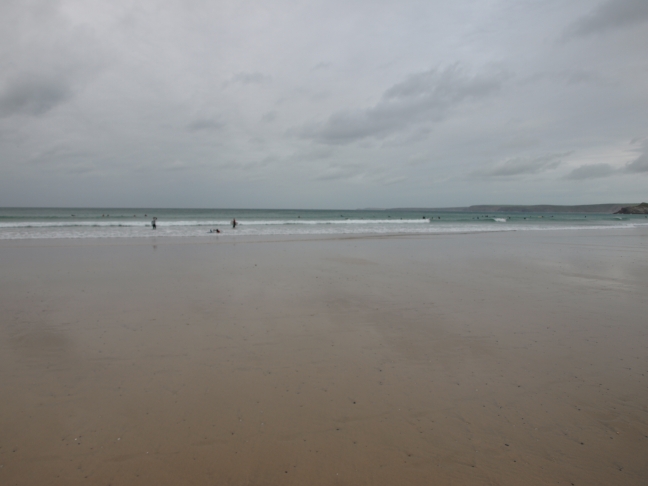Stephanie Merritt, who reviews books for The Guardian, has called This Changes Everything the ‘most important book I’ve read all year’.[1] In it, Naomi Klein demands that we collectively take more responsibility for climate change that is ongoing and threatens to destroy everything that we know, as the rather macabre title implies. She regrets how ‘each supercharged natural disaster produces new irony laden snapshots of a climate increasingly inhospitable to the very industries most responsible for it’s warming’.[2] For a historical perspective, however, what is interesting is that Klein seems consistently driven to refer to the past in order to construct her argument for the future.
For one, the title of the extract of her book recently published in The Guardian includes ‘Marshall Plan’ in its title. It is only by using the example of post second war levels of danger than Klein can communicate how powerful, climate change is. Why does the general public not respond unless they are given these harsh terms, and does this approach even work? Further, it does seem Klein uses the term without any historical context, but it nevertheless implicitly strengthens her argument. In an interview, Klein states change can ‘only happen through a convergence of existing movements’, and clearly she draws on History in order to do this.[3]

A key theme in the work is justice and equality, both socially and economically. Klein feels that the green movement is a great opportunity to get more people enthused about social change.[4] Where does Klein turn for her example of how this has prospered previously? To the New Deal of 1929, following the Wall Street Crash, and to post WW2 social programmes which both highlight her reliance on history.[5] Really, though, this shouldn’t come as a surprise. As a pupil in school I faintly remember being taught that in science you should always find evidence for your points. This is what Klein does masterfully. The reader is left in no doubt that social change is possible as a result of the green movement, and Klein’s brief overview of modern history is effective nonetheless.
Again and again, Klein uses historical examples. Refuting the often-repeated lazy claim that halting climate change is impossible because it requires a global union of all nations, she writes of how they did, using the UN, ‘from ozone depletion to nuclear proliferation’ (again, lazy but effective historical examples).[6] Klein hopes for people to contribute to the book, to point out its flaws.[7] Her historical analysis is weak, but she is not a historian. Her strengths are in the narrative of the book, and history sits nestled amongst this, effective if underdeveloped. There is room for hope in the book, acres of room, and Klein has an optimistic tone as she uses the past as a weapon in fighting and winning the battle against climate change ignorance and denialism.
In an interview Klein gave to Grist, her optimism shines: ‘we’re going to win this because this is an issue of values, human rights, right and wrong’.[8] And she is right to be confident, it would appear. In This Changes Everything she uses previous examples of how morality overcame the status quo to dominate mainstream belief. Slavery, racial discrimination, sexual discrimination and apartheid are the examples that she uses.[9] This is what the climate movement needs, she deliberates, an engagement with the masses, which can then demonstrate that climate change is happening and that it can be stopped, like slavery and the rest of her list. Klein is right in claiming that the green movement needs to receive ‘the crisis treatment’ that those received and that although politicians can declare one, ‘mass movements of regular people can declare one too’.[10] All that’s needed is the spark. The supports for Klein’s (altogether convincing) argument are of historical ideology, bulldozing history a place amongst the science of climate change.
One of Klein’s main criticisms of our current lifestyle is of the economic system, and, in a YouTube video she claims that unrestrained corporate greed caused both the financial and climate crises, and that as a result, those protesting either should unite.[11] She claims, in This Changes Everything, that ‘our economic and planetary system are now at war’ and that, given the laws of nature will not, our economic system must shift. [12] Philosopher Slavoj Žižek, in The Pervert’s Guide to Ideology, suggests that what governs us is capitalism, without any space for a green movement.[13] Devastatingly, this has already been proved, specifically with Exxon and Shell’s disappointing attitudes to the agreements made at Copenhagen UN Summit in 2009.[14]
But all we have to do is keep on denying how frightened we actually are, in a condition that Klein describes as ‘on-again-off-again ecological amnesia’, and deny that we are so swayed by ideology as Žižek might suggest.[15] The simple reason for this, clearly, is that it is easier to pretend climate does not affect you than to act, disturbingly the same argument that could be applied to slavery or sexism. It is not anyone’s fault, no, but we all contribute to the overall picture by causing irrevocable damage to the planet.
The most frustrating thing, however, is that we know we can stop procrastinating and act. Between 1938 and 1944, ‘use of public transport went up by 87% in the US and 95% in Canada’.[16] Klein again precisely and accurately attributes this to a lack of immediacy of the threat of climate change, in comparison to war. However, climate change is just as immediate, but so far removed from our blinkered, ideological vision of the world that all we are able to see is a perfect future, with science coming to the rescue.
It is time we removed our blinkers and act. ‘Climate change is a slide. Out mission is to harness the shocks and the slides to win the shifts that we want’.[17] These are Kleins words, they have grave consequences. The words that Klein keeps returning to are ‘what is wrong with us?’, and it an apt sentiment. Klein proves that we have the means and ability to halt the slide and resituate climate change as a mass social movement, but this does not seem likely. Naomi Klein’s frustration is infectious, to quote Žižek: ‘the first step to freedom is not just to change reality to fit your dreams, it’s to change the way you dream’, and her book expresses these frustrations well.[18] We must completely reassess how we view climate change, and draw a more realistic picture. A picture not dominated by what we see, but by what exists, and Klein’s historical narrative, coupled with Žižek’s analysis, brings this goal closer.
Tom Richards
[1] The Guardian, 1/12/14 ‘Writers pick the best books of 2014: part 2’, http://www.theguardian.com/books/2014/dec/01/-sp-writers-pick-best-books-2014-part-2, [last accessed 7 March 2015]
[2] The Guardian, 6/3/15, ‘If enough of us decide that climate change is a crisis worthy of Marshall plan levels of response, then it will become one’, http://www.theguardian.com/environment/2015/mar/06/dont-look-away-now-the-climate-crisis-needs-you, [last accessed 7 March 2015]
[3] Kim Bryan, ‘This Changes Everything: a chat with Naomi Klein’, The Practical Journal of Sustainable Living 95 (2015), 14
[4] Bryan, ‘This Changes Everything’, 16
[5] ibid.
[6] The Guardian, 8/3/15, ‘It is our great collective misfortune that the scientific community made its decisive diagnosis of the climate threat at the precise moment when an elite minority was enjoying more unfettered political, cultural, and intellectual power than at any point since the 1920s’, http://www.theguardian.com/environment/2015/mar/08/how-will-everything-change-under-climate-change, [last accessed 7 March 2015]
[7] Bryan, ‘This Changes Everything’, 15
[8] Grist, 9/2/15, http://grist.org/climate-energy/naomi-klein-on-why-low-oil-prices-could-be-a-great-thing/, [last accessed 6 March 2015]
[9] The Guardian, 6/3/15
[10] ibid.
[11] 11/11/11, https://www.youtube.com/watch?v=MJ8CoxnjjZg, [last accessed 7 March 2015]
[12] The Guardian, 8/3/15
[13] Sophie Fiennes, The Pervert’s Guide to Ideology (2012)
[14] Grist, 10/2/15, http://grist.org/climate-energy/naomi-klein-on-how-to-build-a-more-kick-ass-climate-movement/, [last accessed 7 March 2015]
[15] The Guardian, 6/3/15
[16] The Guardian, 8/3/15
[17] Grist, 10/12/15
[18] Sophie Fiennes, The Pervert’s Guide to Ideology (2012)





